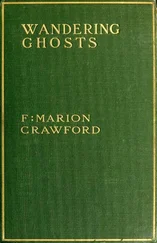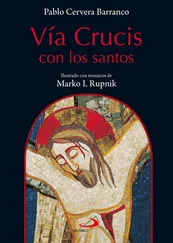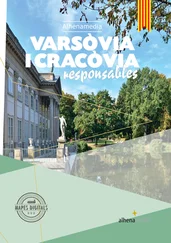F. Crawford - Via Crucis
Здесь есть возможность читать онлайн «F. Crawford - Via Crucis» весь текст электронной книги совершенно бесплатно (целиком полную версию без сокращений). В некоторых случаях можно слушать аудио, скачать через торрент в формате fb2 и присутствует краткое содержание. Жанр: Исторические приключения, на английском языке. Описание произведения, (предисловие) а так же отзывы посетителей доступны на портале библиотеки ЛибКат.
- Название:Via Crucis
- Автор:
- Жанр:
- Год:неизвестен
- ISBN:нет данных
- Рейтинг книги:3 / 5. Голосов: 1
-
Избранное:Добавить в избранное
- Отзывы:
-
Ваша оценка:
- 60
- 1
- 2
- 3
- 4
- 5
Via Crucis: краткое содержание, описание и аннотация
Предлагаем к чтению аннотацию, описание, краткое содержание или предисловие (зависит от того, что написал сам автор книги «Via Crucis»). Если вы не нашли необходимую информацию о книге — напишите в комментариях, мы постараемся отыскать её.
Via Crucis — читать онлайн бесплатно полную книгу (весь текст) целиком
Ниже представлен текст книги, разбитый по страницам. Система сохранения места последней прочитанной страницы, позволяет с удобством читать онлайн бесплатно книгу «Via Crucis», без необходимости каждый раз заново искать на чём Вы остановились. Поставьте закладку, и сможете в любой момент перейти на страницу, на которой закончили чтение.
Интервал:
Закладка:
But when the spring day dawned and the birds sang at his window, and when, looking out, he felt the breath of the sweet south and saw that Rome smiled again, then his resolutions failed, and instead of bidding Dunstan pack his armour and his fine clothes for a journey, he made his men mount and ride with him to the far regions of the city. Often he loitered away the afternoon in the desolate regions of the Aventine, riding slowly from one lonely church to another, and sometimes spending an hour in conversation with a solitary priest who, by living much alone and among inscriptions and old carvings, had gathered a little more learning than was common among the unlettered Romans.
He met with no adventures; for though the highways in the country swarmed with robbers always on the watch for a merchant's train or for a rich traveller, yet within the city's limits, small as was the authority of the Senate and of the Prefect, thieves dared not band together in numbers, and no two or three of them would have cared to come to blows with Gilbert and his men.
Nor did he make friends in Rome. His first intention had been to present himself to the principal baron in the city, as a traveller of good birth, and to request the advantages of friendship and protection; and so he would have done in any other European city. But he had soon learned that Rome was far behind the rest of the world in the social practices of chivalry, and that in placing himself under a Roman baron's protection he would, to all intents and purposes, be taking service instead of accepting hospitality. Even so, he might have been willing to take such a position for the sake of adventure; yet he could by no means make up his mind to a choice between the half-Jewish Pierleoni and the rough-mannered Frangipani. To the red-handed Crescenzi he would not go; the Colonna of that time were established on the heights of Tusculum, and the Orsini, friends to the Pope, had withdrawn to distant Galera, in the fever-haunted marsh northwest of Rome.
But here and there he made the acquaintance of a priest or a monk whose learned conversation harmonized with his thoughts and helped the grave illusion in which-perhaps out of sheer idleness-he loved to think himself back in the abbey in England. And so he led a life unlike the lives around him, and many of the people in the quarter learned to know him by sight, and called him and his men 'the English'; and as most of the people of Rome were very much occupied with their own affairs, chiefly evil, Gilbert was allowed to live as he pleased. But for the fact that even his well-filled purse must in the course of time be exhausted, he might have spent the remainder of his life in the Lion Inn, by the bridge, carelessly meditative and simply happy. But other forces were at work to guide his life into other channels, and he had reckoned ill when he had fancied, being himself unmoved, that the love of such a woman as Queen Eleanor was a mere incident without consequence, forgotten like a flower of last year's blossoming.
Several times during the winter and in the spring that followed, the friar Arnold came to see him in his lodgings and talked of the great things that were coming, of the redemption of man from man by the tearing down of all sovereign power, whether of pope or emperor, or king or prince, to make way for the millennium of a universal republic. Then the fanatic's burning eyes flashed like beacons, his long arms made sudden and wild gestures, his soft brown hair stood from his head as though lifted by a passing breeze, and his whole being was transfigured in the flash of his own eloquence. When he spoke to the Romans with that voice and with that look, they rose quickly to a tumult, as the sea under a gale, and he could guide them in their storming to ends of destruction and terror. But there was no drop of southern blood in Gilbert's veins nor anything to which the passionate Italian's eloquence appealed. Instead of catching fire, he argued; instead of joining Arnold in his attempt to turn the world into a republic, he was more and more persuaded of the excellence of all he had left behind him in the north. He incarnated that aristocratic temper which has in all times, since Duke William crossed the water, leavened the strong mass of the Anglo-Saxon character, balancing its rude democratic strength with the keenness of a higher physical organization and the nobility of a more disinterested daring, and again and again rousing the English-speaking races to life and conquest, when they were sunk deep in the sordid interests of trade and money— making. So when Arnold talked of laws and institutions which should again make Rome the mistress of the world, Gilbert answered him by talking of men who had the strength to take the world and to be its masters and make it obey whatsoever laws they saw fit to impose. Between the two there was the everlasting difference between theory and action; and though it chanced that just then Arnold, the dreamer, was in the lead of change and revolution, while Gilbert, the fighter, was idling away weeks and months in a dream, yet the fact was the same, and in manly strength and inward simplicity of thought Gilbert Warde, the Norman, was far nearer to the man who made Rome imperial than was the eloquent Italian who built the mistress city of his thoughts out of ideas and theories, carved and hewn into shapes of beauty by the tremendous tools of his wit and his words. At the root of the great difference between the two there was on the one side the Norman's centralization of the world in himself, as being for himself, and on the other the Latin's power and readiness to forget himself in the imaginations of an ideal state.
"Men are talking of a second Crusade," said Arnold, one day, when he and Gilbert had chanced to meet in the garden court of Saint Peter's.
Gilbert was standing with his back against one of the cypress trees, watching the fiery monk with thoughtful eyes.
"They talk of Crusades," said Arnold, stopping to face the young man. "They talk of sending hundreds of thousands of Christian men to die every death under God's sun in Palestine-for what? To save men? To lift up a race? To plant good, that good may grow? They go for none of those things. The sign on their breasts is the cross; the word on their lips is Christ; the thought in their hearts is the thought of all your ruthless race-to take from others and add to your own stores; to take land, wealth, humanity, life, everything that can be taken from conquered man before he is left naked to die."
Gilbert did not smile, for he was wondering whether there were not some truth in the monk's accusation.
"Do you say this because Norman men hold half of your Italy?" he asked gravely. "Have they held it well or ill?"
"Ill," answered Arnold, fixing his eyes sharply on Gilbert's face. "But that is not the matter; some of them have helped me, too. There are good men and bad among Normans, as among Saracens."
"I thank you," said Gilbert, smiling now, in spite of himself.
"The devils also believe and tremble," retorted Arnold, grimly quoting. "The taking of the South proves my words; it is not half my meaning. Men take the cross and give their lives for a name, a tradition, the sacred memories of a holy place. They will not give a week of their lives, a drop of their blood, for their fellow-men, nor for the beliefs that alone can save the world."
"And what are those beliefs?" asked Gilbert.
Arnold paused before he replied, and then as he lifted his face, it was full of light.
"Faith, Hope, Charity," he answered, and then, as his head drooped with a sudden look of hopelessness, he turned away with slow steps toward the great gate.
Gilbert did not change his position as he looked after him rather sadly. The man's perfect simplicity, his eagerness for the most lofty ideals, the spotless purity of his life, commanded Gilbert's most true admiration. And yet to the Norman, Arnold of Brescia was but a dreamer, a visionary, and a madman. Gilbert could listen to him for a while, but then the terrible tension of the friar's thought and speech wearied him. Just now he was almost glad that his companion should depart so suddenly; but as he watched him he saw him stop, as if he had forgotten something, and then turn back, searching for some object in the bosom of his frock.
Читать дальшеИнтервал:
Закладка:
Похожие книги на «Via Crucis»
Представляем Вашему вниманию похожие книги на «Via Crucis» списком для выбора. Мы отобрали схожую по названию и смыслу литературу в надежде предоставить читателям больше вариантов отыскать новые, интересные, ещё непрочитанные произведения.
Обсуждение, отзывы о книге «Via Crucis» и просто собственные мнения читателей. Оставьте ваши комментарии, напишите, что Вы думаете о произведении, его смысле или главных героях. Укажите что конкретно понравилось, а что нет, и почему Вы так считаете.










